Every Kennedy family tragedy that's fueled the idea of a 'Kennedy curse'
After Robert and John F. Kennedy were assassinated, a rumor formed that the family could be cursed.
Their history has been marred with tragedy, from four plane crashes to a deadly skiing accident.
In 1969, Ted Kennedy publicly referenced the curse when apologizing for fleeing a fatal car crash.
Members of the Kennedy family have reached the highest positions in public office, becoming senators, congressmen, and president. Now, the next generation of Kennedys is on the rise.
But the family has also dealt with numerous tragedies — two assassinations, two overdoses, four plane crashes, a skiing accident, and even a botched lobotomy — that have led to rumors they are "cursed."
Here are the many tragedies that have struck the Kennedy family.
Kennedy patriarch Joe Kennedy Sr. had high expectations of his children. Some conspiracists have suggested he was to blame for what would befall his family.
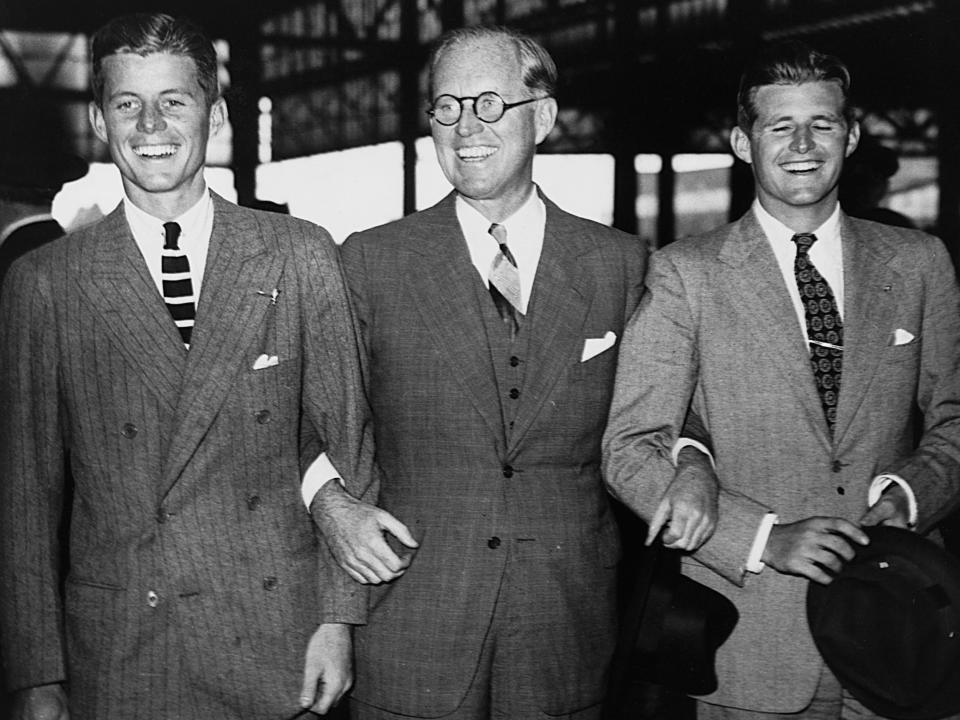
Joe Kennedy Sr. rose from reasonably humble beginnings to become an ambassador to Britain, and he made millions working as a bank president, selling liquor, and owning a Hollywood studio, The Atlantic reported.
Conspiracists have maintained that the Kennedy patriarch committed crimes like bootlegging to make the fortune that eventually supported future Kennedy endeavors.
The New Yorker reported these crimes were often mentioned "in the same breath" as the tragedies that struck the Kennedys, "assuming that there is a dark pattern in the way things happen."
The first Kennedy to feel the brunt of his ambition was his daughter, Rosemary, born in 1918.
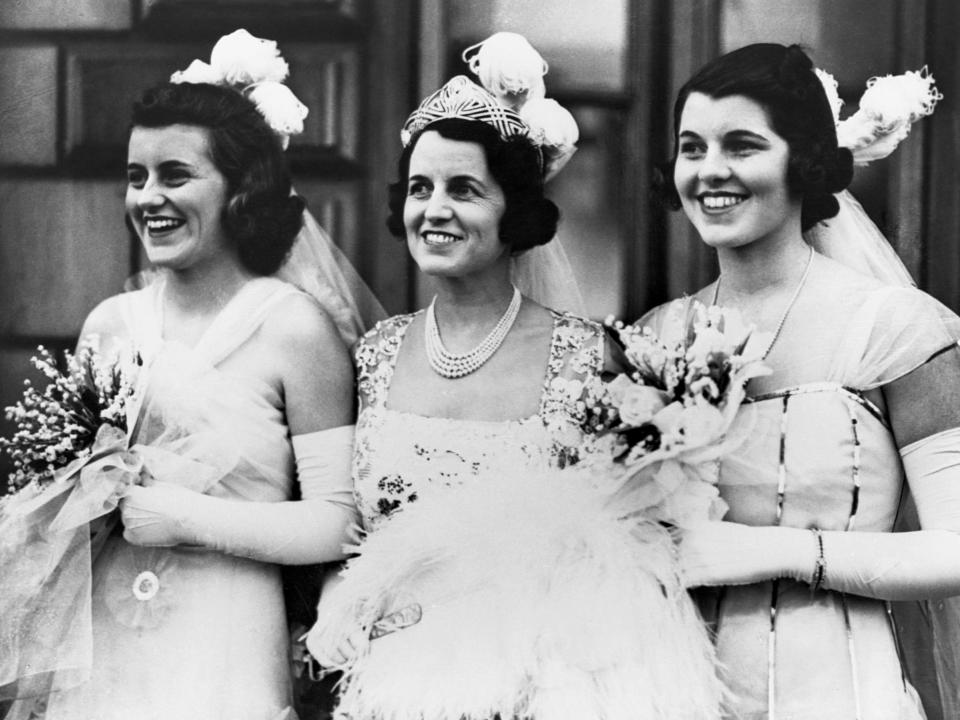
She had seizures and tantrums and was intellectually disabled, though her parents worked hard to keep that a secret from society.
To avoid the suspicion that anything was different about Rosemary, she was presented alongside her sister Kathleen at Buckingham Palace with other eligible debutantes, Marie Claire reported.
"To present Rosemary, an intellectually disabled adult, to the monarchy at Buckingham Palace during the debutante season was more than a bold act," Kate Clifford Larson, the author of "Rosemary: The Hidden Kennedy Daughter," said, Marie Claire reported.
"A debutante with intellectual disabilities would have stirred long-held prejudices about passing along 'defective' traits to the next generation," she said. "Joe and Rose were determined to keep the family secret, making sure that Rosemary was treated just like all the other eligible young women presented at court that year."
In 1941, Joe Kennedy Sr. organized for his daughter, then 23, to have a lobotomy, with disastrous consequences.
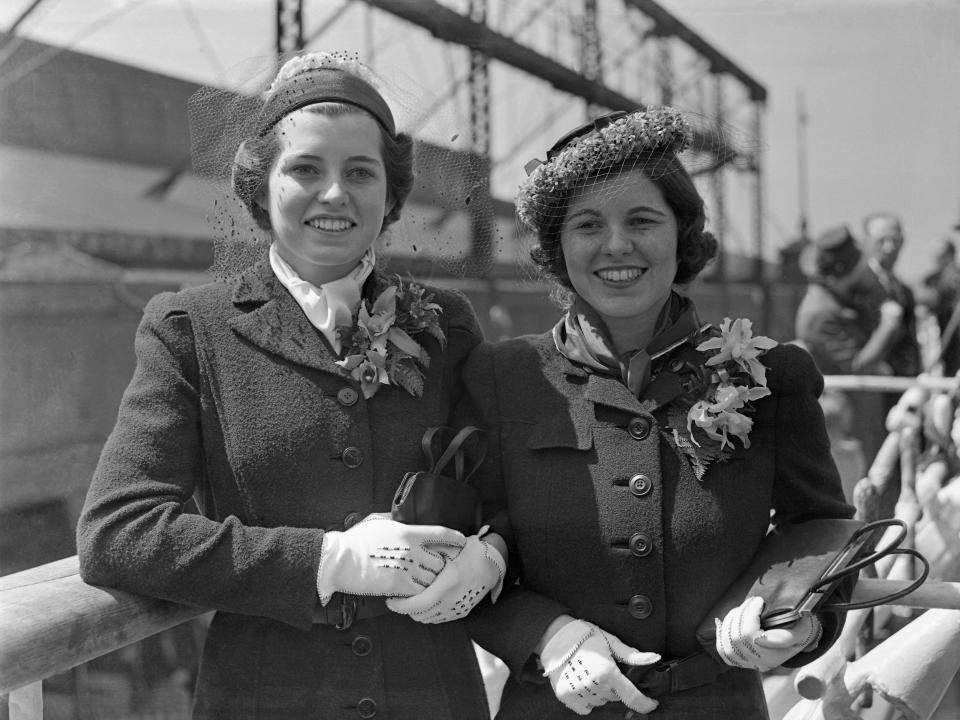
At the time, the media said the operation was "easier than curing a toothache," NPR reported, and was frequently used to "treat" people with mental illnesses. However, the lobotomy only made Rosemary's condition worse.
For months afterward, she was unable to walk or talk, and she was put into an institution and cut off from her family for the next two decades. Rosemary lived at a mental health facility until her death in 2005.
The next tragedy struck the eldest son, Joseph P. Kennedy Jr.
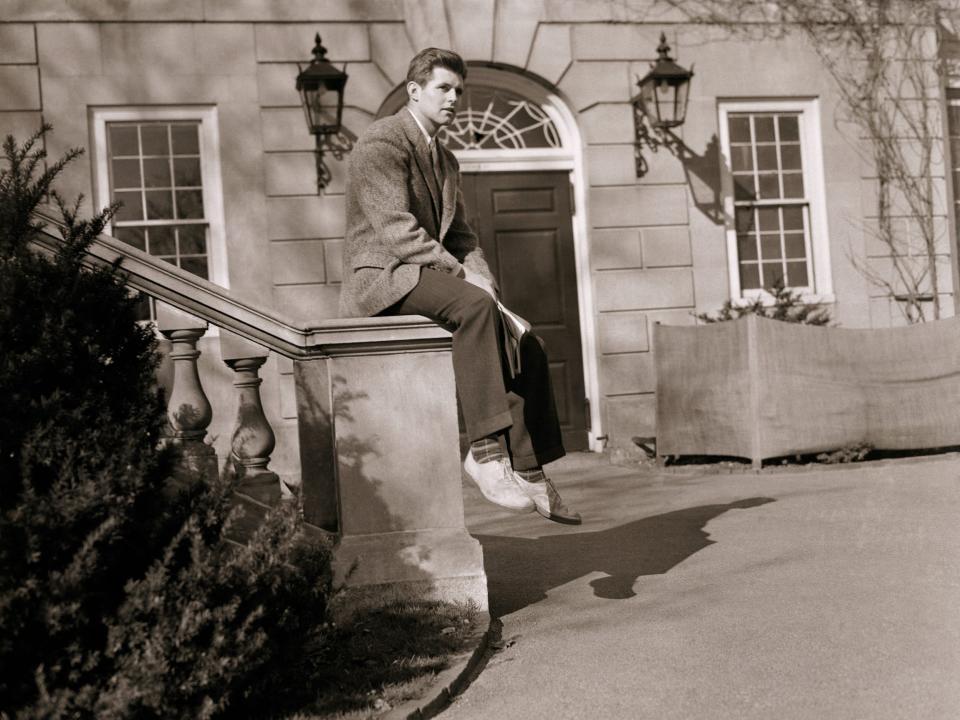
Joe Jr. had been groomed for political office his whole life. When he was born, his grandfather, who was then the mayor of Boston, had told the press he would become president one day, according to the National Park Service.
Joe Jr. was successful both as an athlete and a student, Vanity Fair reported.
When he graduated from high school he was awarded a trophy for the best student in both "scholarship and sportsmanship," according to Vanity Fair.
Joe Jr. left before his senior year at Harvard Law to volunteer as a Navy flyer in World War II. He died during a failed secret bombing campaign.
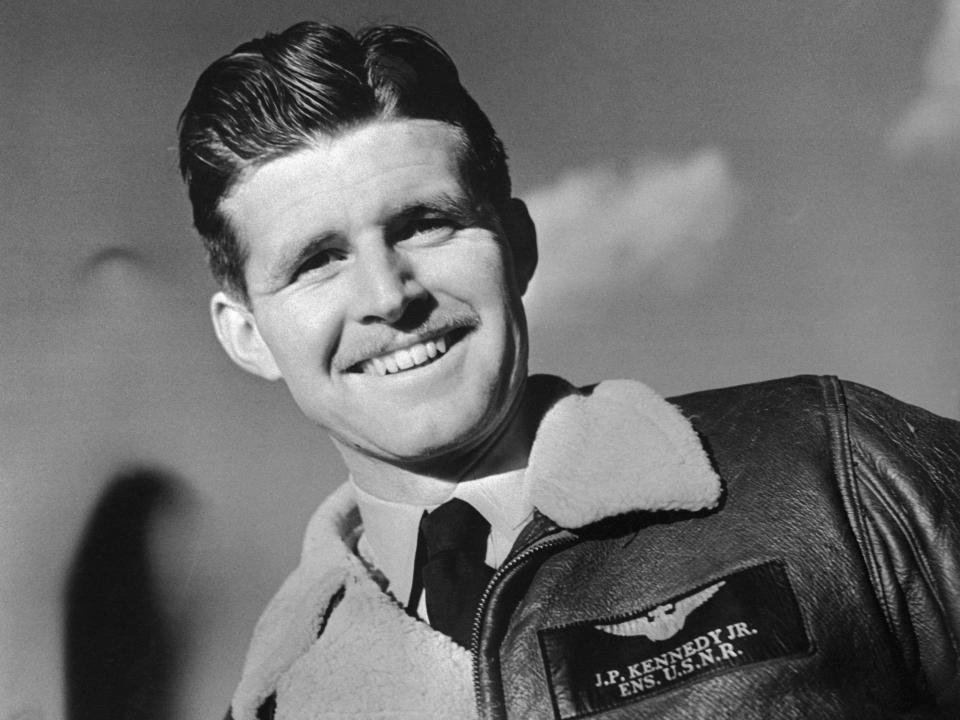
According to the National Park Service, Joe Jr. volunteered for the mission, which involved flying explosives over enemy territory before igniting them and parachuting to safety. However, the explosives were accidentally set off early, killing both pilots on board the aircraft.
"His worldly success was so assured and inevitable that his death seems to have cut into the natural order of things," his brother John wrote in a family memorial.
In 1948, another plane crash rocked the family when Kathleen "Kick" Kennedy died in a plane crash in France.
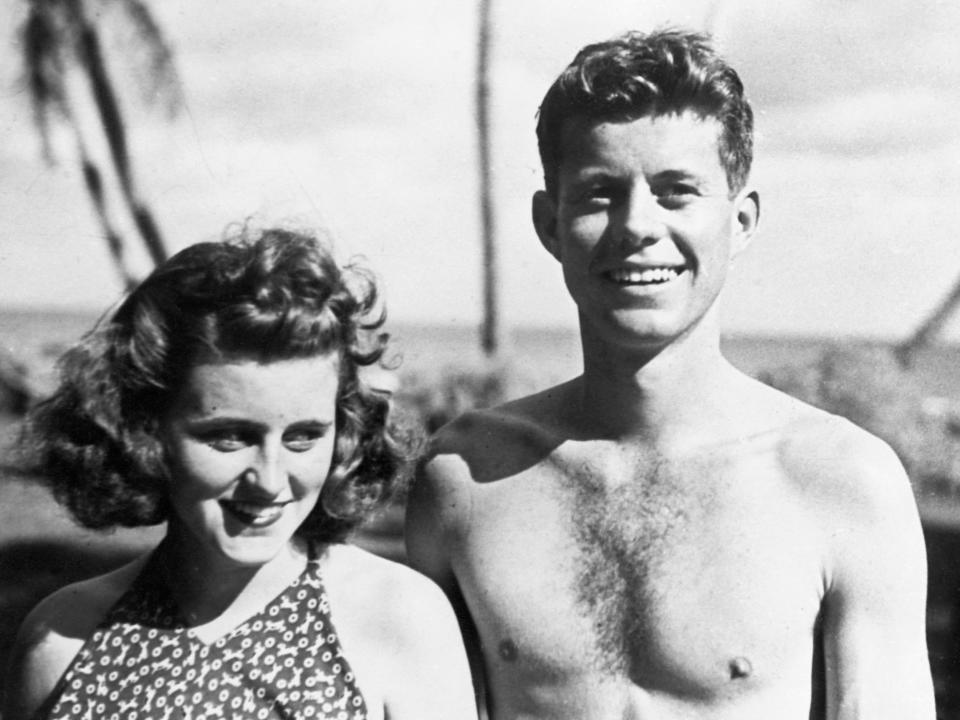
She had been a headstrong child, and her decisions in her love life caused a rift in the family — her mother, Rose, disapproved of Kathleen's soon-to-be marriage to a Protestant man, The Atlantic reported.
Months after their wedding in 1944, her husband was killed in battle and she began an affair with Earl Peter Wentworth Fitzwilliam, a married man.
Before the couple traveled to Paris to seek her father's blessing, People reported, their 10-seat plane encountered turbulence that caused it to crash into the mountains between Paris and Cannes.
Both Kick and Peter, who was piloting the plane, were killed on impact. She was 28 years old. Only her father, Joe Sr., attended her funeral, according to The Atlantic.
After Joe Jr.'s death, Joe Sr. turned his focus to John F. Kennedy, who told a friend, "Now the burden falls on me."
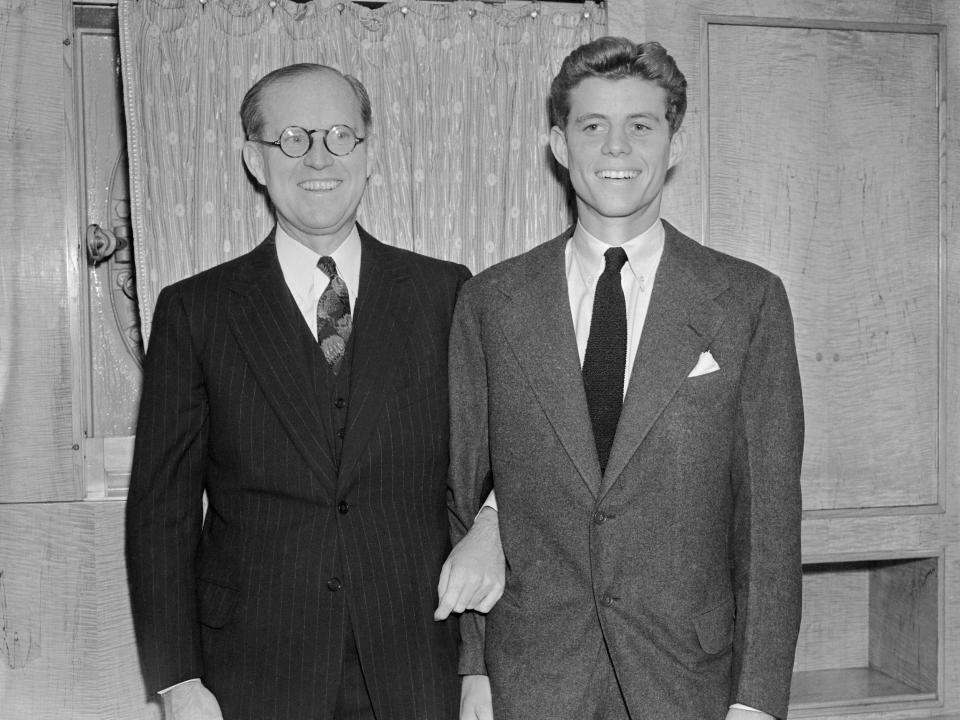
Joe Sr. helped him begin his political life, using his contacts to call in favors and spending tens of thousands of dollars on his campaign, The Atlantic reported.
He reportedly said, "We're going to sell Jack like soap flakes," per PBS.
In 1960, John F. Kennedy became president of the United States, and his family became forever regarded as American royalty.
President John F. Kennedy was assassinated while riding in a motorcade in downtown Dallas.
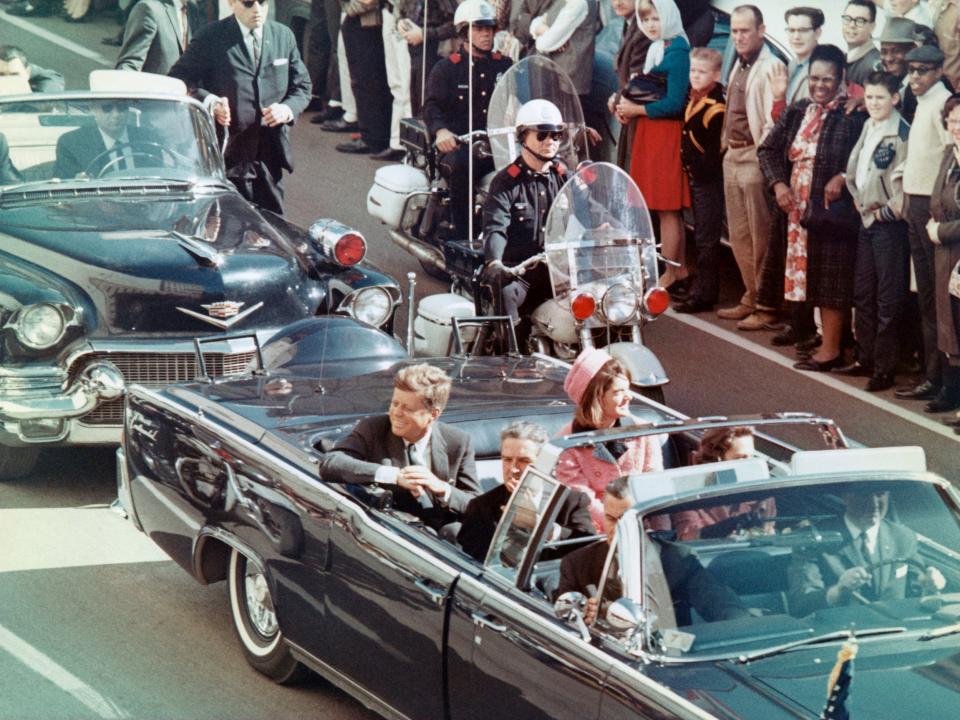
He was fatally shot on November 22, 1963. President Kennedy was 46 years old.
The so-called "curse" of the Kennedys began to solidify the following week when Jackie Kennedy, who was known for shaping her family's image and her husband's presidency, invited a Life magazine reporter to Cape Cod for an exclusive interview.
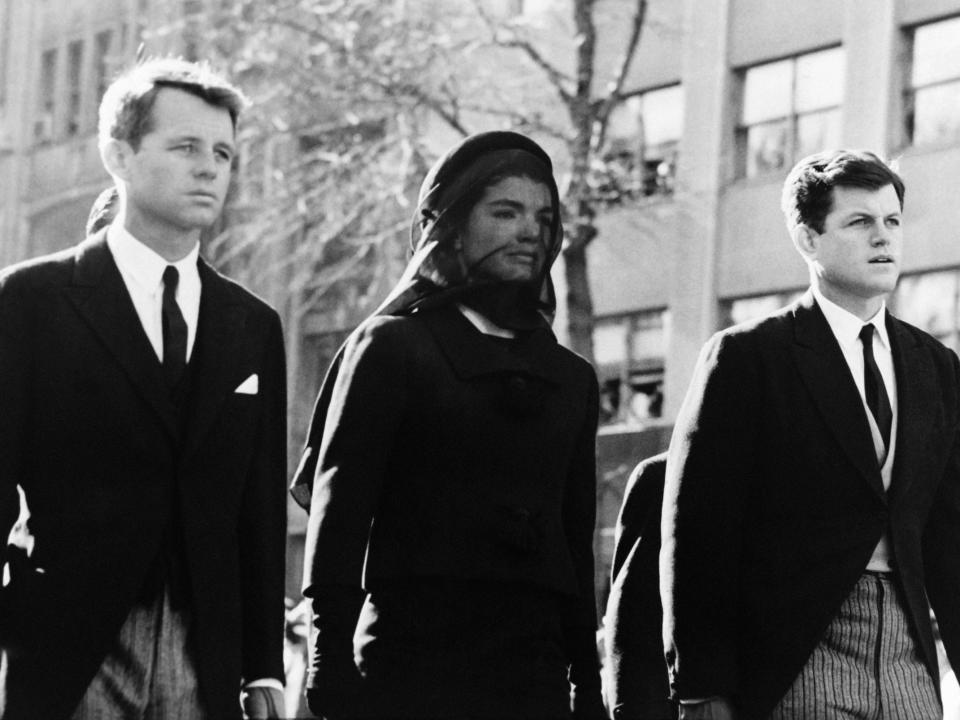
During the interview, she said, "There will be great presidents again, but there will never be another Camelot," CBS reported.
"You must think of this little boy, sick so much of the time, reading history, reading the Knights of the Round Table, reading Marlborough," she continued, The Atlantic reported. "For Jack, history was full of heroes."
It was over the next few years, as Robert "Bobby" Kennedy grieved for his brother, that he started to see parallels between his family and the ancient Greeks.
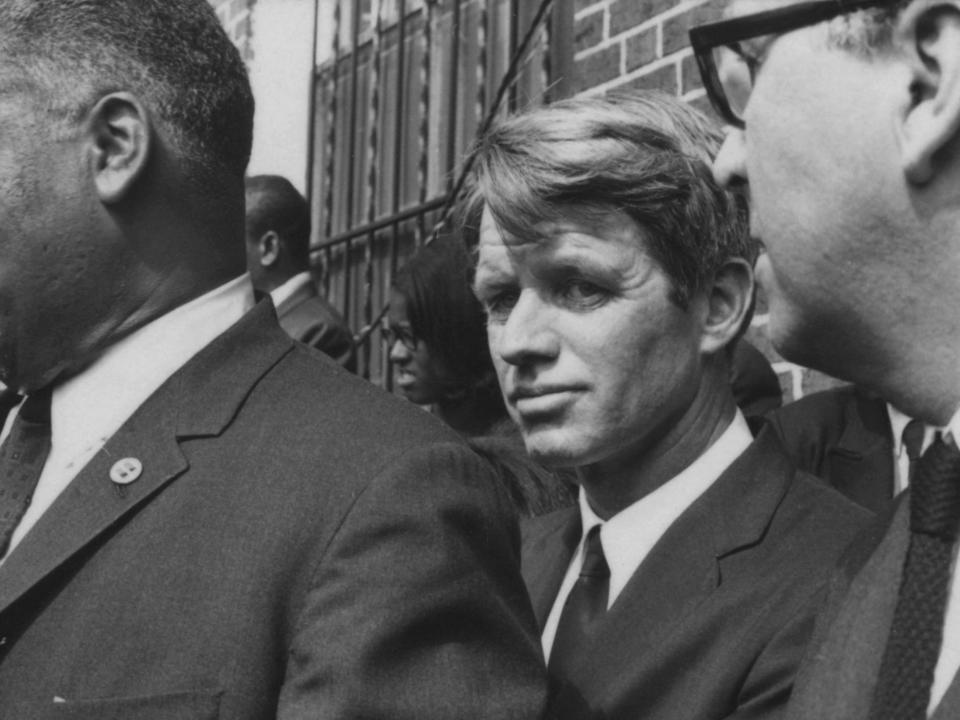
A devout Catholic, Bobby began to question the source of his family's tragedies, and whether God could give him the answer as to why they had all suffered so much grief, The Washington Post reported.
Bobby had studied the ancient Greek tragedies throughout his education, and he began to draw parallels between the classic parables and his family's woes.
"He began to wonder if the Kennedy family had somehow overreached, dared too greatly," author Evan Thomas wrote in "Robert Kennedy: His Life," per The Washington Post.
"Athenian drama returns obsessively — as we do, every November 22nd — to the shocking and yet seemingly inevitable spectacle of the fallen king, of power and beauty and privilege violently laid low," Daniel Mendelsohn wrote in The New Yorker.
In 1964, seven months after his brother was assassinated, tragedy almost struck the Kennedys again when Sen. Ted Kennedy went down in a plane crash.
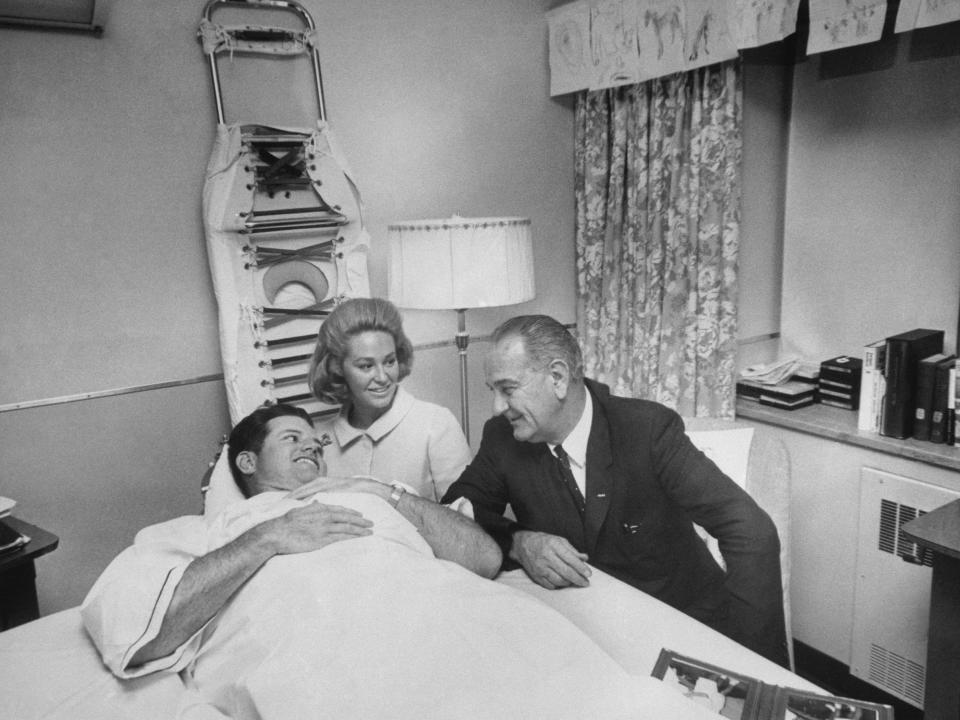
Two people were killed in the incident, but Kennedy lived, CNN reported. He was left badly injured though. He broke two ribs and three vertebrae, and his lung collapsed, Boston Magazine reported.
After the incident, Bobby alluded to the idea of the Kennedys being unlucky.
"There are more of us than there is trouble," he told the media after the crash. "The Kennedys intend to stay in public life. Good luck is something you make, and bad luck is something you endure."
Just four years later, in 1968, Bobby Kennedy was assassinated while campaigning to be president.
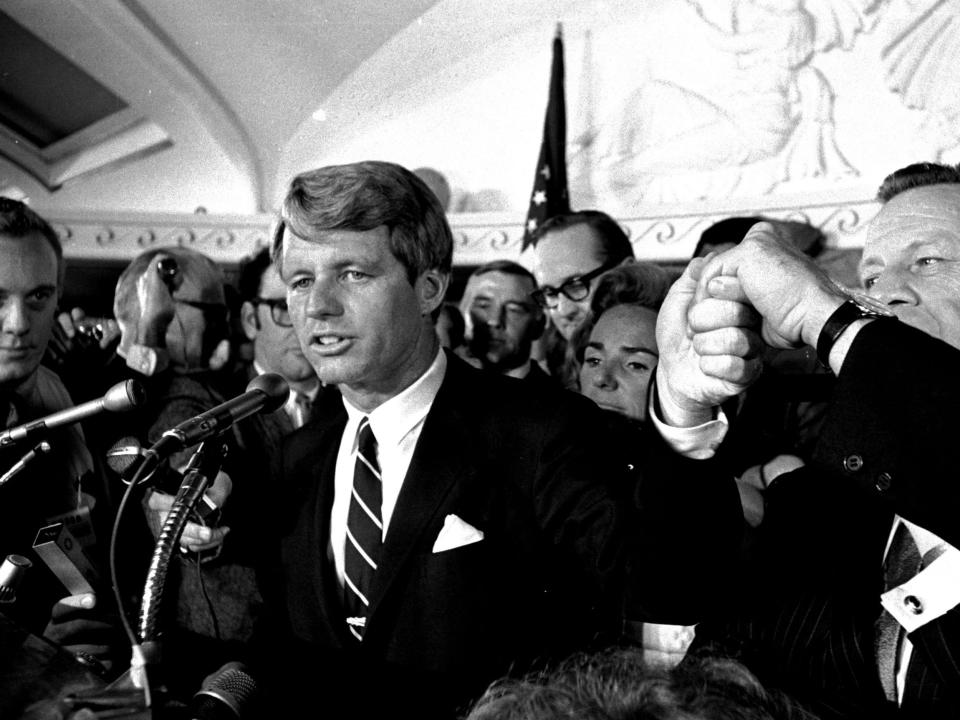
He was shot moments after he had won the California Democratic presidential primary. After he was struck, he asked a busboy if everybody else was unharmed, The Atlantic reported.
The busboy reportedly placed a rosary in his hand and told him that everyone was fine, according to The Atlantic. Robert "Bobby" Kennedy died soon after at the age of 42.
It was yet another blow to the Kennedy family, especially since Bobby had been acting as a surrogate father to his late brother John's two children. He also had 11 of his own children with his wife of 18 years, Ethel Kennedy.
In 1969, Ted Kennedy had another near-death experience when he survived driving off a bridge on the island of Chappaquiddick in Massachusetts.

Ted Kennedy, then a senator, drove the car off the bridge after leaving a cookout party at a rented cottage, The Atlantic reported. His passenger, a woman named Mary Jo Kopechne, died at the scene.
Ted reportedly tried to save Kopechne, but he then fled and didn't report the crash for 10 hours. Still trapped inside the car, Kopechne drowned in the water. Ted later pleaded guilty to leaving the scene and was sentenced to a two-month suspended jail sentence, the BBC reported.
Ted remained a senator after the controversy but lost his chance to run for president.
After the crash, Ted Kennedy publicly referenced the idea of a family curse for the first time.
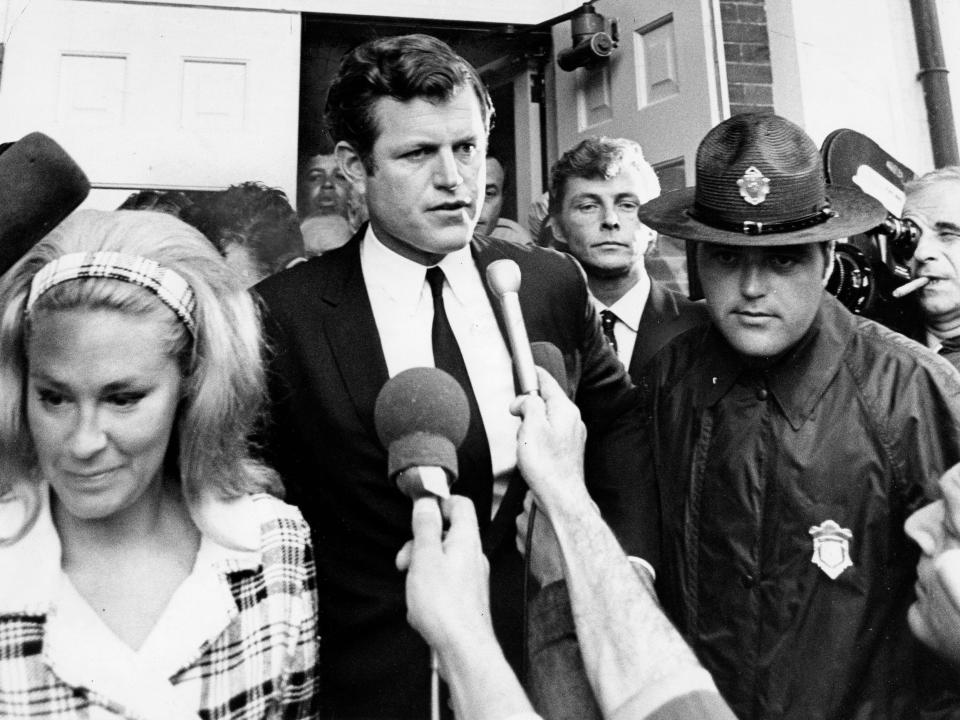
During his televised apology a week after the crash, Ted Kennedy said he had wondered "whether some awful curse did actually hang over all the Kennedys," The Washington Post reported.
It marked the first time a member of the Kennedy family openly spoke about the reported "Kennedy curse," the Herald Tribune reported. But the speech had been crafted by several speechwriters, The New York Times reported, and was arguably more of a PR stunt than a true apology or admission of guilt.
In the speech, he recalled the "scrambled thoughts" that went through his mind after the crash in a speech he gave to the press after the incident.
"They were reflected in the various inexplicable, inconsistent, and inconclusive things I said and did, including such questions as whether the girl might still be alive somewhere out of that immediate area, whether some awful curse did actually hang over all the Kennedys, whether there was some justifiable reason for me to doubt what had happened and to delay my report, whether somehow the awful weight of this incredible incident might in some way pass from my shoulders," he said.
"I was overcome, I'm frank to say, by a jumble of emotions: grief, fear, doubt, exhaustion, panic, confusion, and shock."
In 1984, Bobby Kennedy's son, David Kennedy, died of an overdose in a hotel in Florida.

David had struggled with addiction for years after his father's assassination in 1968.
The New York Times reported that David was possibly traumatized after watching his father's assassination on TV when he was 13 years old. He was only 28 years old when he was found dead in his Los Angeles hotel room.
Cocaine, painkillers, and a prescription drug used to treat several different psychotic disorders were found in his system, the Times reported, though there was no determination of whether it was an accidental overdose.
"He was sensitive and gentle, which was attractive," his ex-girlfriend Rachel Ward later wrote of David in The Sydney Morning Herald in 2014. "David was very young when his father Robert F. Kennedy died, and it had an enormous impact on him. He had a drug addiction and was a troubled soul. He didn't have the arrogance of the other Kennedys because he was lost and struggling. But in the end, he couldn't get himself together and went under."
In 1997, Michael Kennedy, another of Robert Kennedy's sons, died in a skiing accident in Colorado.
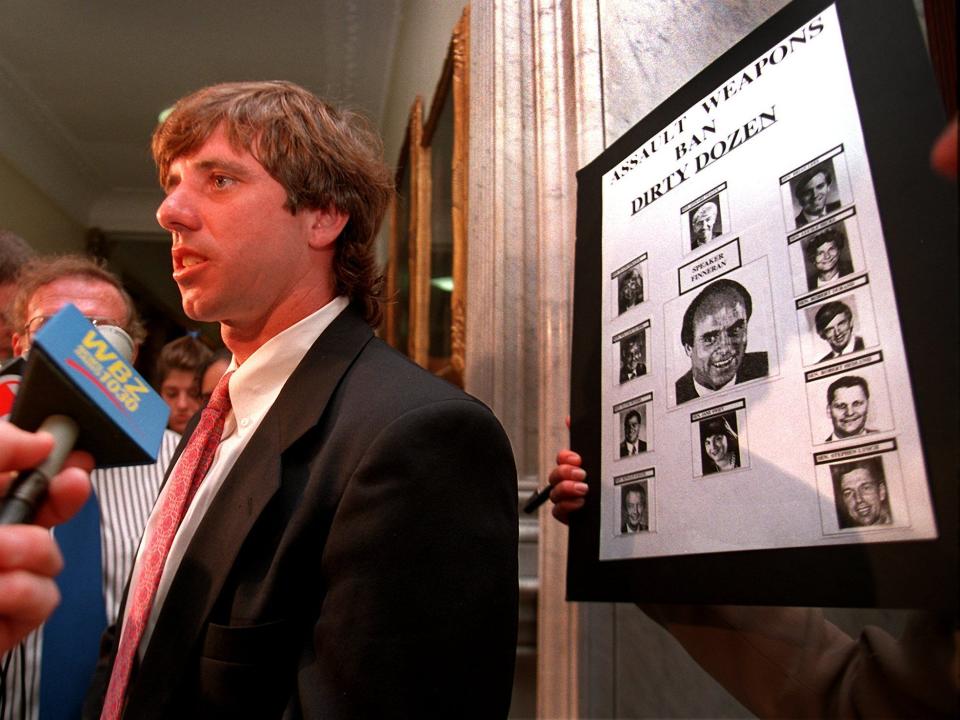
Michael, 39, had been tossing around a football with his relatives while skiing. The family had played "ski-football" for generations, The New York Times reported.
In another public tragedy, John F. Kennedy Jr., his wife, and her sister died in a 1999 plane crash near Martha's Vineyard.
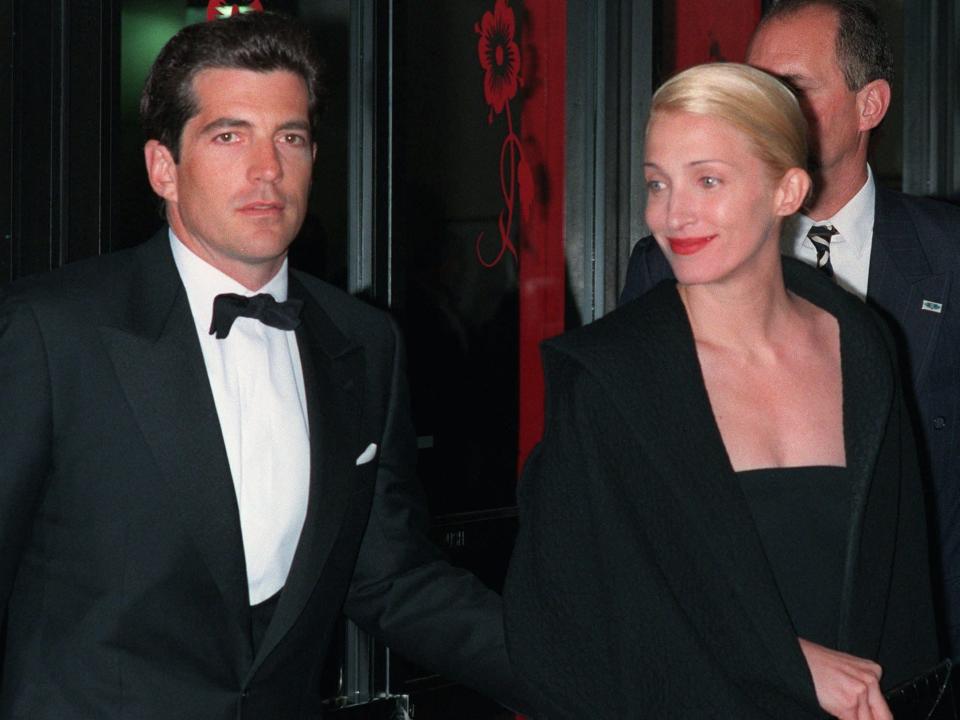
On July 16, 1999, John F. Kennedy Jr., his wife Carolyn Bessette-Kennedy, and her older sister Lauren Bessette were killed in a plane crash off the coast of Martha's Vineyard in Massachusetts.
The group was dropping off Bessette on the island before Kennedy and Bessette-Kennedy planned to travel to Hyannis to attend his cousin's wedding, People reported.
However, after encountering hazy conditions off the coast of Martha's Vineyard, Kennedy, the plane's pilot, crashed it into the ocean, killing everyone on board.
As Coast Guard officials searched for the missing bodies, the public outpouring of grief grew over the tragedy of the three young passengers' deaths.
Twenty years later, in 2019, tragedy struck the next generation of Kennedys when Saoirse Kennedy Hill, Robert's granddaughter, died from an accidental overdose.

Saoirse died of an overdose at the family's compound in Hyannis Port, Massachusetts, The New York Times reported. She was 22 years old when she died, and had previously written about her struggle with depression, which she called "deep bouts of sadness that felt like a heavy boulder on my chest."
"Our hearts are shattered by the loss of our beloved Saoirse. Her life was filled with hope, promise, and love," the family said in an official statement.
In 2020, another of Robert's granddaughters, Maeve Kennedy Townsend McKean, and her 8-year-old son, Gideon, died in a canoe accident.
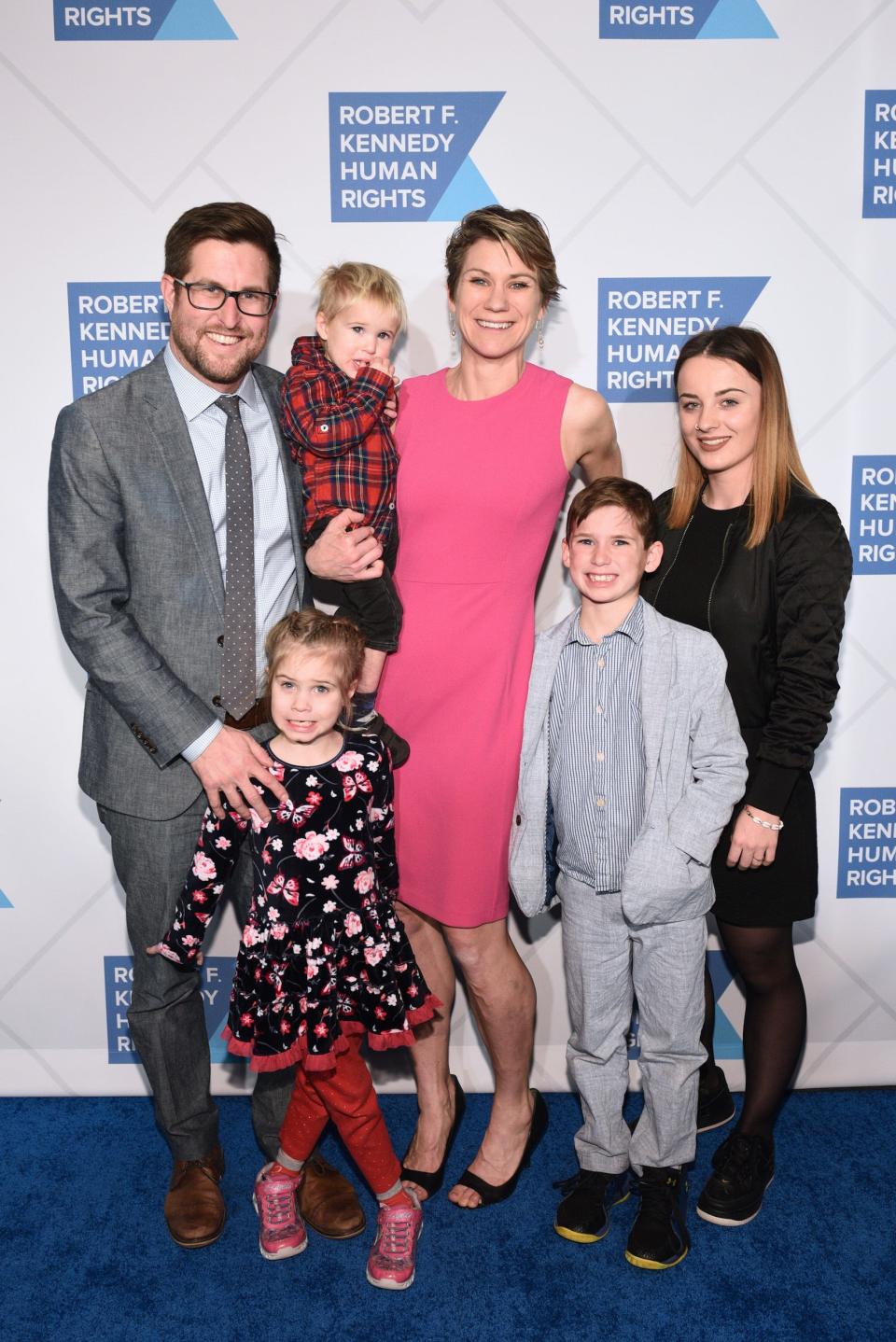
The mother and son went missing in a canoe while searching for a ball that had drifted out into the Chesapeake Bay. Both of their bodies were later found by divers, The New York Times reported.
In 2018, Edward Klein, who wrote the book about the Kennedy curse, defended his claim about the misfortune experienced by the Kennedy family.
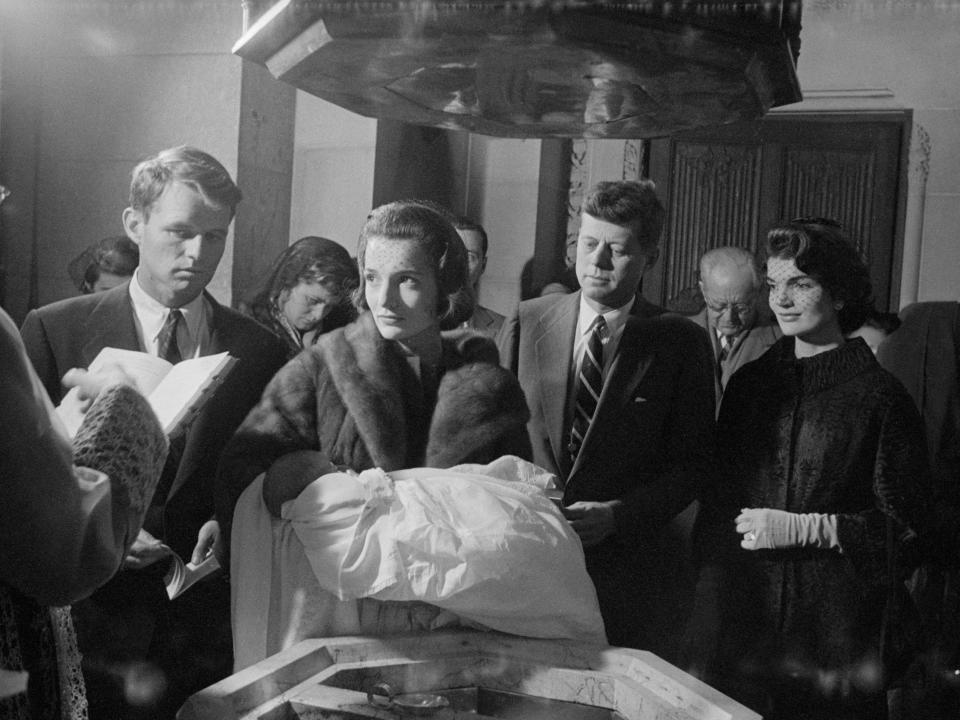
"I've looked high and low and cannot find another family since the ancient Greek House of Atreus that has suffered more calamities and misfortunes than the Kennedys," Klein, the author of "The Kennedy Curse: Why Tragedy Has Haunted America's First Family for 150 Years," said, according to The Washington Post.
Even if some otherworldly force like a curse isn't at play, it's undeniable that the Kennedy family has suffered a long string of tragedies and heartbreak.
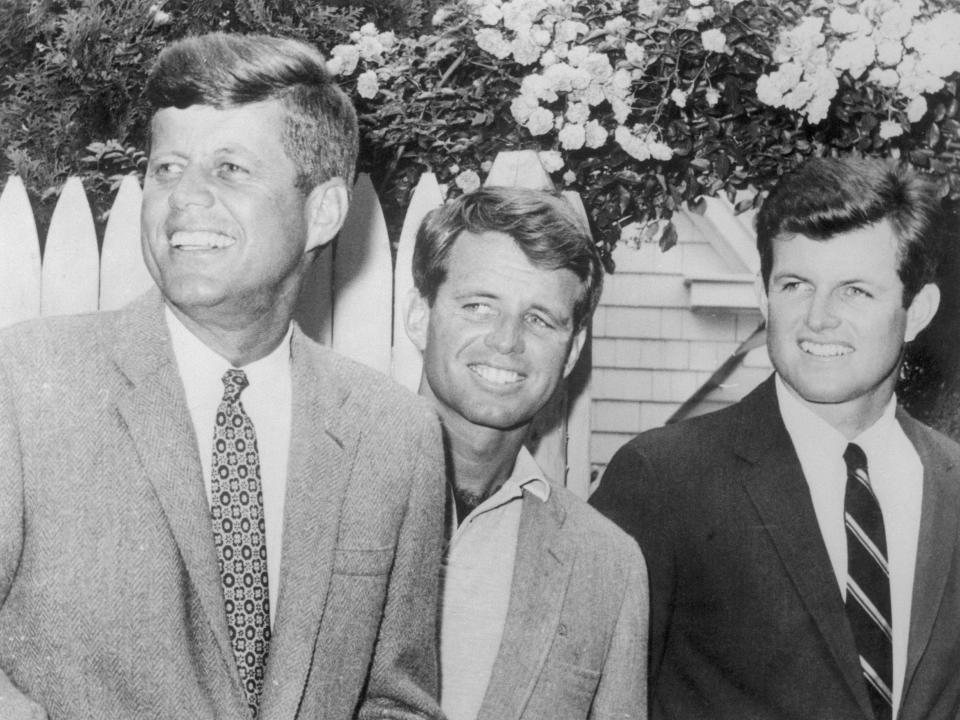
"The humanity of their story is what keeps us engaged," Kennedy family biographer J. Randy Taraborrelli told NBC News in 2019. "We peer behind the scenes of their wealthy lifestyle, and we see, for all the advantages they have, tragedy can still happen."
Read the original article on Business Insider
